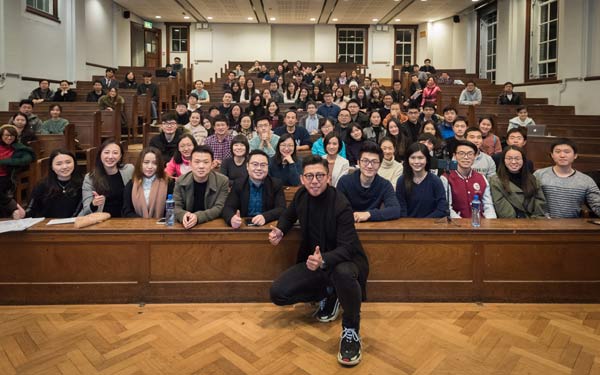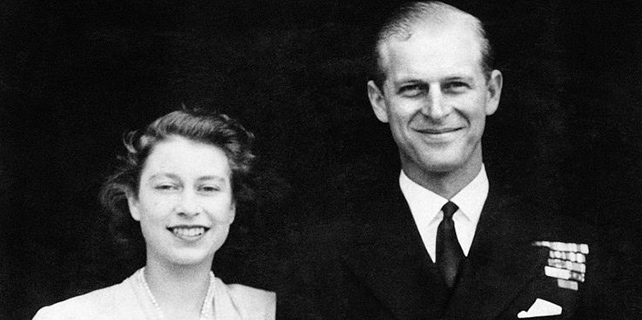Pop singer tells Cambridge audience how he became an investor
 |
|
Pop singer Hu Haiquan poses with a Cambridge audience after giving a speech about the venture capital business, Nov 28, 2017. [Photo provided to chinadaily.com.cn] |
Nearly 200 Chinese fans gathered in a Cambridge University lecture hall on Tuesday to watch pop singer Hu Haiquan give a speech about his venture capital business.
The 42-year-old, who is a household name in China, is a member of one of the country's most popular soft-rock duos, Yu Quan. Founded in 1998, the duo has released 16 albums and won numerous music awards.
Since 2013, the celebrity turned his attention toward investing and set up the venture capital business Haiquan Fund. It has invested in nearly 50 startups and manages about 1.3 billion yuan ($200 million). He was ranked as one of China's "40 Under 40" business leaders by Fortune magazine in 2014.
During his speech, Hu said his new interest was triggered by the rapid development of mobile internet.
"The internet gave a huge shock to the creative industry at that time, so, as a musician, I started to think about what our industry will become and how it should handle the shock and find a new way through, so we need to learn more about the internet," he said. "Then, I gradually discovered more about new technology, new marketing strategy and startups and that’s how I became an angel investor."
The fund has invested in many areas, including technology, media, telecoms, medicare, and home automation, but is now mainly focused on artificial intelligence and consumption upgrades. It now serves more as an incubator, specializing in helping startups through the marketing, branding and upgrading processes.
Hu said his celebrity status has helped with branding and marketing, but he also noted he was turned several times by companies that did not care that he was famous.
This year, he started investing in the cultural industry by helping with the promotion and marketing of films, TV series, concerts, games, and other entertainment areas.
Hu said venture capital should not focus on zero loss, but on raising the rate of return to the best possible level.
At the end of the speech, Hu asked his audience 10 questions about such subjects as their favorite music, games, smart devices, idols, and anime. He said the answers will help him anticipate cultural trends in the coming years.
"That's part of the reason why I came to Cambridge," Hu said. "The generation born after 1995 will be the mainstream power in both culture and consumption soon, that's why I would like to interact with the audience to know more about what the younger generation is thinking, especially considering they're Cambridge students, which means that they have the best cognition in their own majors."
Yang Nana, a master's student studying law who is starting her own film workshop, said: "Hu Haiquan presented a very profound market research which is very interesting and the business strategies and decisions he shared are very beneficial for my own startup."
Zhang Yangfei contributed to this story.









